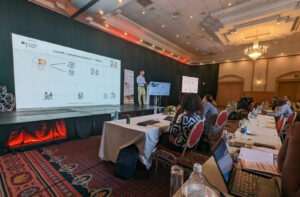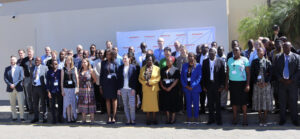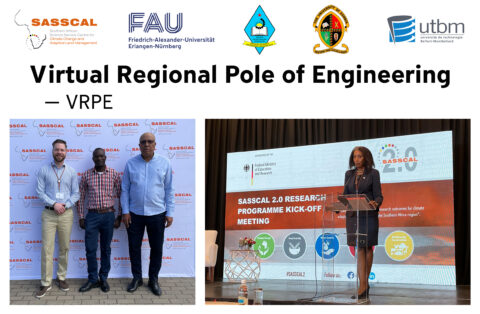Wi1 part of SASSCAL 2.0 project addressing climate change
The consequences of human-caused climate change and interventions in biological ecosystems are becoming increasingly dramatic: extreme weather phenomena, a reduction in biodiversity and desertification are just a few examples. In particular, for the region of southern Africa and the people living there, this has significant negative impacts. To address this problem situation, the German Federal Ministry of Education and Research (BMBF) together with the local nations has initiated the Southern African Science Service Centre for Climate Change and Adaptive Land Management (SASSCAL), which for more than ten years has brought together scientists from the countries of Southern Africa, Germany and beyond in projects to develop strategic but also pragmatic solutions to support the people and wildlife affected by climate change. In doing so, the UN SDGs Climate Change, Food Security, Water Security, Sustainable Forest and Woodlands and Biodiversity Conservation are in particular focus.
In this context, thirteen new projects were launched in Windhoek, Namibia at the SASSCAL 2.0 kickoff. The high-profile conference included contributions from the head of SASSCAL, Jane Olwoch, Dr. Svenja Kruse from the BMBF and the German Ambassador to Namibia Herbert Beck, as well as from representatives of all funded projects.
FAU and PI Prof. Dr. Kathrin M. Möslein were represented at the conference by Sascha Julian Oks, who presented together with the project leader Prof. Dr. Emidio Silva the Virtual Regional Pole of Engineering (VRPE) project. VRPE is a collaborative project of FAU, University of Agostinho Neto, University of Zambia and Université de Technologie de Belfort Montbéliard that develops and adapts IoT solutions that are being implemented by the affiliated projects of the current SASSCAL batch in their respective application domains (environmental monitoring, agriculture, livestock breeding, beekeeping, etc.). In addition, a Scientific Competence Network platform will be designed and implemented to collect and then homogenize the comprehensive findings and knowledge from all SASSCAL projects to make them available to stakeholders in southern Africa. The project work started with workshops and fieldwork in Luanda and Huambo, Angola. We very much look forward to the further collaboration and to transferring our expertise in IoT and CPS from Industry 4.0 applications by analogy building and adaptation to the highly relevant domain of fighting climate change.
More information on the funded projects can be found here.


